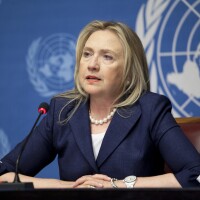Feinstein Supports California Fracking Bill

California's generally green-leaning U.S. Senator Dianne Feinstein has reaffirmed her concerns over the fossil fuel extraction process known as "fracking" by informally endorsing a bill in the state Legislature that would put strict limits on the practice.
Senate Bill 4, sponsored by State Senator Fran Pavley (D-Agoura Hills), would require the state's Department of Natural Resources to work with air and water pollution control boards across the state to come up with more stringent regulations of hydraulic fracturing, now used to ease extraction of oil and natural gas from the state's subterranean reserves.
The bill would also regulate "acidizing," a practice commonly used along with fracking in which acids are injected into the fossil fuel reservoirs to increase the porosity of the surrounding rock.
"I strongly support Senator Pavley's legislation and urge the legislature to pass the bill and Governor Brown to sign it," said Feinstein.
Pavley's bill would also require disclosure of substances used in both fracking and acidizing to regulators, researchers, and public health officials. Industry is likely to fight this tooth and nail: drilling companies using both processes have long held that the precise combination of chemicals they use to boost their extraction should be considered protected trade secrets. Predictably, that assertion doesn't sit too well with fracking opponents, who point out that it's good to know what substances might be entering the groundwater near drilling operations.
In addition, Pavley's bill would mandate an independent scientific study of fracking, acidizing, and other oil well stimulation treatments in California, and better notification for people who live near drilling projects where such procedures are used.
"The discovery that fracking and acidization of oil and gas formations could produce approximately 23.9 billion barrels of petroleum in the continental United States -- 64 percent of which is estimated to lie within the Monterey Shale formation underlying portions of Central and Southern California -- points to the need for action to ensure protection of the state's natural resources," said Senator Feinstein.





